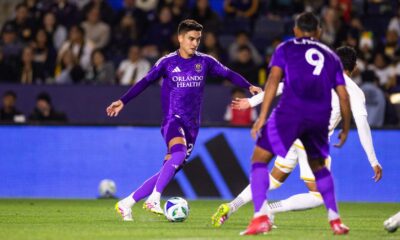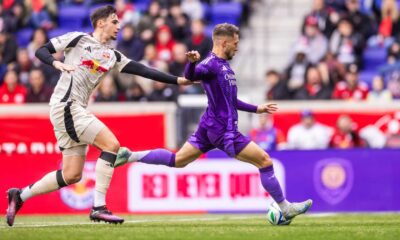Orlando City
Orlando City vs Toronto FC: Player Grades and Man of the Match
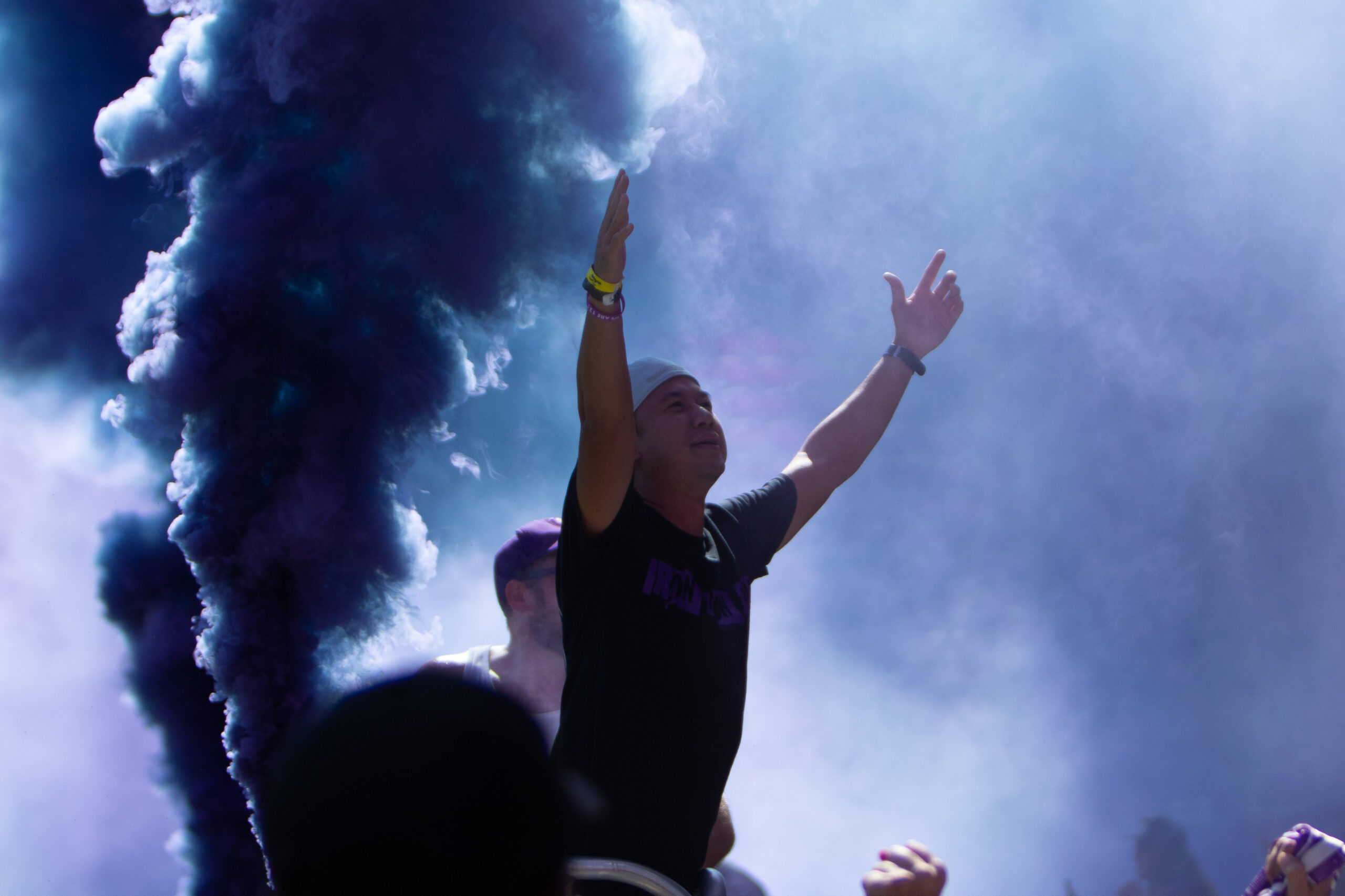
Orlando City grabbed a win in the team’s return to Major League Soccer play with an exciting 3-2 victory. The easiest road trip of all time was nearly a disaster after blowing an early two-goal lead, but Junior Urso played the hero and rescued all three points. Here’s how everyone fared in Orlando’s return to action:
Starters
GK, Brandon Austin, 5.5 — It was an ok first outing for Brandon Austin in place of Pedro Gallese. The young Englishman did concede twice, and nearly a third if it wasn’t for Kyle Smith, but also made two good saves. He wasn’t asked to do much in distribution, but completed nine of 12 passes. If there’s one big criticism for Austin it was the way he commanded his area. He wasn’t sharp off his line or in the air, giving Toronto chances. Maybe that’s a bit harsh, but he could’ve been a bigger presence in the box. Granted, he’s young and it’s his first game, so that could easily develop as he gets more comfortable.
D, Joao Moutinho, 7 — Joao was a good contributor against the Reds. He played slightly deeper a lot of the time, more of a left center back almost, but his presence was felt. His passing was important in possession — completed 71 of 84 (85%) — while still adding a forward thrust, adding three accurate long balls, two key passes, and an accurate cross. He also still got forward, finding a half chance in the box he couldn’t control and hit well wide. His defensive work was also impressive with three aerial wins, a tackle, an interception, and nine ball recoveries. The one real demerit on his game was his occasional sloppiness, as he was dispossessed twice. He did also pick up a yellow card on a tactical foul.
D, Robin Jansson, 6 — Not bad, but not an overly influential performance from Jansson. Not too much distribution work from the Swede, with only 33 completed passes (impressive 97% though), including just one completed long ball. Defensively, he made seven clearances, an interception, and two ball recoveries. He was beaten in the air for Toronto’s first goal, and while Ayo Akinola is an incredible athlete, you expect more from your center back that close to goal
D, Antonio Carlos, 6.5 — Another good all-around performance from Antonio Carlos. His distribution was great, completing all 40 of his passes, including six long balls. Defensively, he was his usual self, with 10 clearances, three aerial wins, and four ball recoveries. He also had a blocked shot off a set piece. He was a little slow to close out space, giving the likes of Alejandro Pozuelo and Richie Layrea too much space, and was arguably culpable on Toronto’s second goal after overrunning the play.
D, Kyle Smith, 7.5 — This man just gets the job done. Smith was great for the Lions once again, making countless good defensive plays and providing some danger from the right flank. While he did struggle at times to handle the dribbling of Richie Layrea and company, he did make a tackle, two interceptions, nine ball recoveries, and four clearances, including a fantastic goal-line clearance in the second half. Offensively, he completed 40 of 46 passes (87%), but was a solid creative presence in combination with Silvester van der Water and Urso on the right flank. He had two successful dribbles, a key pass, an off-target shot, and an accurate cross. Smith will never be as dangerous as Ruan in attack, but his all-around excellence and grit might make him a first-team regular even after the Brazillain returns.
MF, Junior Urso, 8 — It was a big box-to-box performance from the Bear against Toronto. Effective in possession and keying the transition, he completed 43 of 47 passes (91%) and got off two shots, including a well-taken goal to win the game late on. He won the ball back in midfield and played a quick one-two with Chris Mueller before making a clean finish. He was also effective defensively, particularly winning the ball back in midfield, with a tackle, interception, and five ball recoveries. Both he and Perea were occasionally caught upfield, giving Toronto space to attack, but their presence pushing forward and on the press gave Orlando a real threat. Urso also picked up his first yellow card of the season.
MF, Andres Perea, 7.5 — An understated but impressive performance from Perea standing in for Sebas Mendez. He was excellent in possession, completing 59 of 63 (94%) of his passes, including three of four long balls. Like Urso, Perea’s defensive presence was impressive, with two tackles, an interception, and seven ball recoveries. He wasn’t as offensively involved as his Brazilian teammate, but he was an effective player who opened things up for the creative players ahead of him, including an excellent line-splitting ball to Mauricio Pereyra that eventually resulted in the opening goal.
MF, Silvester van der Water, 7.5 — Originally this was a little higher, the Dutchman is such a bright spot on this team it’s hard not to highly rate him, but I have to keep myself honest. His intelligence and work rate created the second goal, perfectly pressing Toronto’s Quentin Westberg to force a mistake and create an excellent opportunity in the box. He got a secondary assist for Nani’s goal as a result. He was a goal threat, cutting in from the right, with one shot hitting Westberg and he had goal disallowed for offside just before the half. Unfortunately for Orlando, he really faded down the stretch before being subbed off in the 70th minute for Mueller. In total, he completed 28 of 31 passes (90%), had a key pass, a successful dribble, and six ball recoveries. Even if he faded, the technical quality and dynamism he’s shown the last three games have made him a must-start player and a real threat for Orlando City moving forward.
MF, Mauricio Pereyra, 8 — This is the Mauricio Pereyra we saw last year. The Uruguayan picked up an assist on the opening goal, picking a perfect through ball to the feet of Tesho Akindele. He also played van der Water in behind on multiple occasions with slick passes. Pereyra completed 44 of 53 passes (83%) including four of six on long balls with two key passes as well. If there’s one real demerit to Pereyra’s game it’s his lack of a goal threat. There were opportunities for him to potentially find a shot, but he’s always looking to create. That’s mostly great, and he was good again tonight, I just wish he were more direct at times. Defensively he was involved with six ball recoveries and a clearance.
F, Nani, 8 — Awesome stuff from Nani in his return to action. He got off the mark early, grabbing his fourth goal in his last five appearances in the eighth minute on a good headed finish. He was active, with three shots — including a sublime free-kick just off the mark — and also two key passes. His crossing was dangerous, if slightly underwhelming with only one accurate cross on eight attempts, and he completed 27 of his 35 passes (77%). He got back and contributed defensively as well with a successful tackle and three ball recoveries, while also being a force in the air with three aerial wins. Another great performance from Nani as he continues his scorcher of a start to the season.
F, Tesho Akindele, 8.5 (MoTM) — Tesho has been playing great this season. The Canadian got back on the scoresheet in the first minute of the game and added an assist soon after. While he didn’t have a shot after the goal, his all-around work continues to impress, making selfless runs, pressing hard, and holding the ball up well. He completed 16 of 19 passes (84%), had a key pass, won an aerial duel, made a ball recovery, and made a clearance. He might not be as consistently goal dangerous as Daryl Dike or maybe even Alexandre Pato, but the all-around work Tesho puts in is incredibly valuable.
Substitutes
F, Daryl Dike (64’), 7 — He’s back! It was a good 30-minute shift for the rapidly ascending American. He gave Omar Gonzalez fits, drawing a foul and a yellow card on the top of the box and nearly having another breakaway chance before Chris Mavinga snuffed it out in the box. Not much in the way of stats for Dike though — no shots, only two passes attempted (one completed), and he won an aerial duel. If he gets to go from the jump he will be a nightmare for the opposition.
MF, Chris Mueller (71’), 6.5 — Another mixed bag of a game for Mueller. I will say he was generally pretty good and he did have the assist on the winner — his third of the year. He also had a shot from a dangerous opportunity, though it drifted wide. The execution wasn’t quite there, as on a misplaced pass to a wide-open Dike in the box, but to see Mueller being more direct and aggressive is a promising sign. It wasn’t the most efficient of outings. He only completed four of his seven passes and had some rough touches at times. To his credit, he made up for it with his effort, particularly defensively, where he made two clearances and two ball recoveries.
F, Benji Michel (80’), 6.5 — There’s not much to say about Michel’s game. Brought in to add that extra punch and go for the winner in the last 10 minutes, Michel brought energy to the final third. While he wasn’t really involved in the goal, his pace and willingness to take people on is always welcome late in the game. He did get a shot off, completed two of three passes, won an aerial duel, and made a ball recovery in his 10-minute run out.
That’s how I saw everyone’s performance, but what did you see? Let us know down below and make sure to vote for your Man of the Match.
Polling Closed
| Player | Votes |
| Tesho Akindele | 12 |
| Nani | 7 |
| Mauricio Pereyra | 6 |
| Kyle Smith | 30 |
| Junior Urso | 24 |
| Other (Comment Below) | 1 |
Lion Links
Lion Links: 4/1/25
Barbra Banda’s continued importance, Americans in midweek action, USWNT announces friendly, and more.
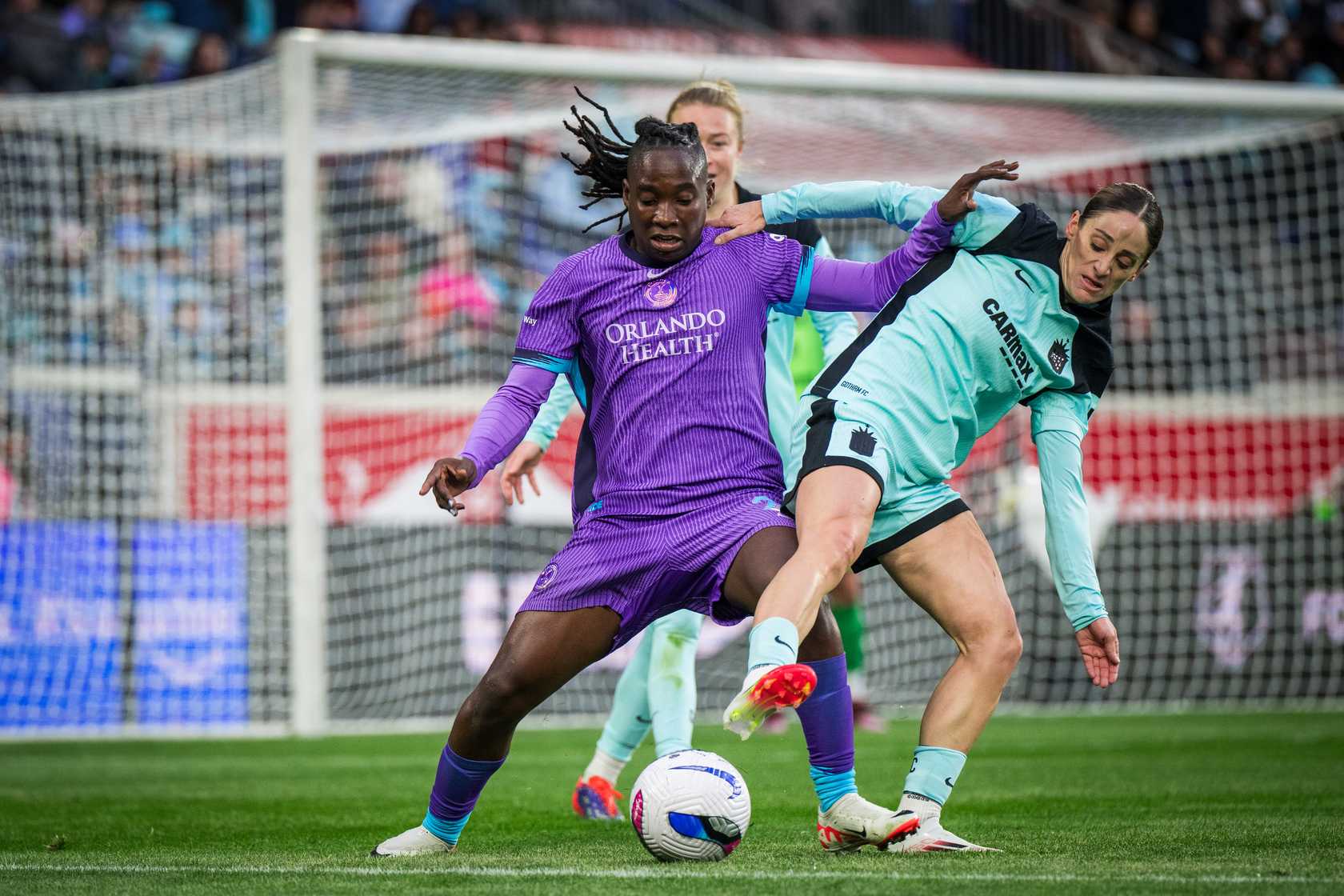
Good morning everyone! It was a great weekend for Orlando’s soccer teams as Orlando City and the Orlando Pride both won, meaning that we got treated to a six-point weekend (OCB was off). As always we have plenty to talk through this morning, so let’s get into today’s links.
Barbra Banda Keeps Rolling in 2025
After a wildly successful debut season with the Orlando Pride in 2024, Barbra Banda has showed no signs of slowing down this year. A brace in the season opener meant that she picked up right where she left off last year, and the team has continued to be successful too. The Pride have made it three wins from three to start the 2025 season, and while Banda hasn’t scored since the opener, her blend of pace, power, dribbling, passing, and movement have continuously helped open things up for her teammates, and she drew a penalty that led to the Pride’s game-winning goal Saturday. She isn’t the Pride’s only offensive weapon, but the team clicks into a different gear when she’s at her best.
Americans in Midweek Action
There are a number of Americans who will be playing in games during the working week, and there are some very important clashes on hand. Things get going later today when Antonee Robinson and Fulham visit Arsenal in Premier League play as the Cottagers are in hot pursuit of a coveted European place. Wednesday has Chris Richards, Matt Turner and Crystal Palace facing Southampton, while Tyler Adams and Bournemouth take on Manchester City. Also on Wednesday, Christian Pulisic, Yunus Musah, and AC Milan will face Inter Milan in a Coppa Italia semifinal. Things finish up on Friday as Aidan Morris and Middlesborough travel to Blackburn Rovers in the EFL Championship.
USWNT Announces Canada Match
The United States Women’s National Team has announced another friendly taking place this summer, as the team will face Canada on July 2 in Washington, D.C. The match will be the third that the USWNT will play during the window, following a pair of friendlies against Ireland in late June. The neighboring countries will meet at Audi Field with the match designated as the Allstate Continental Clasico, with this being the first time that the match will feature the USWNT. The U.S. faced Canada twice in 2024, with both matches ending in 2-2 draws and the USWNT emerging victorious in shootouts.
Concacaf Champions Cup Preview
The Concacaf Champions Cup returns this week, with the first legs of the four quarterfinal matches set to be played today and tomorrow. Things get started tonight with what should be an exciting match between Club America and Cruz Azul, with the crosstown rivals two of the winningest teams in the competition. Cruz Azul’s Angel Sepulveda leads the CCC’s golden boot race with four tallies. The late game sees the LA Galaxy taking on Tigres as the Galaxy will try to distract themselves from a difficult start to their MLS Cup title defense. Wednesday’s slate has the Vancouver Whitecaps taking on Pumas UNAM in Canada in what will be the second-ever meeting between the two teams. The late game will be an all-MLS affair as LAFC hosts Inter Miami in the first meeting between the two sides in CCC play.
Sporting Kansas City Fires Peter Vermes
The longest-tenured coach in Major League Soccer is out of work, as Sporting Kansas City announced the firing of Peter Vermes on Monday morning. It’s an end of an era in Kansas City, as Vermes was the head coach since 2009, back when the team was still called the Kansas City Wizards, and he had been named the club’s technical director three years earlier in 2006. He guided the team to an MLS Cup win in 2013; claimed U.S. Open Cup titles in 2012, 2015, and 2017; and helped the team be consistently competitive for a majority of his tenure. Despite all of that, SKC missed the playoffs in two of the last three seasons and was mired in the midst of a 13-game winless streak in all competitions that stretched back to Sept. 18 of last year. After being an assistant on Vermes’ staff, Kerry Zavagnin will take over as interim head coach.
Free Kicks
- Orlando City jumped eight places to no. 11 in ESPN.com’s MLS power rankings.
- Meanwhile the Orlando Pride continue to hold sway at no. 1 in ESPN.com’s NWSL power rankings.
- Germany great Thomas Muller has reportedly received offers from MLS teams.
- Tierna Davidson will not play in the USWNT’s upcoming games against Brazil due to a knee injury, with Gisele Thompson replacing her on the roster.
That’s all I have for this morning. Vamos Orlando!
Orlando City
Orlando City vs. LA Galaxy: Player Grades and Man of the Match
How did your favorite Lions perform in Orlando City’s 2-1 victory over the LA Galaxy?
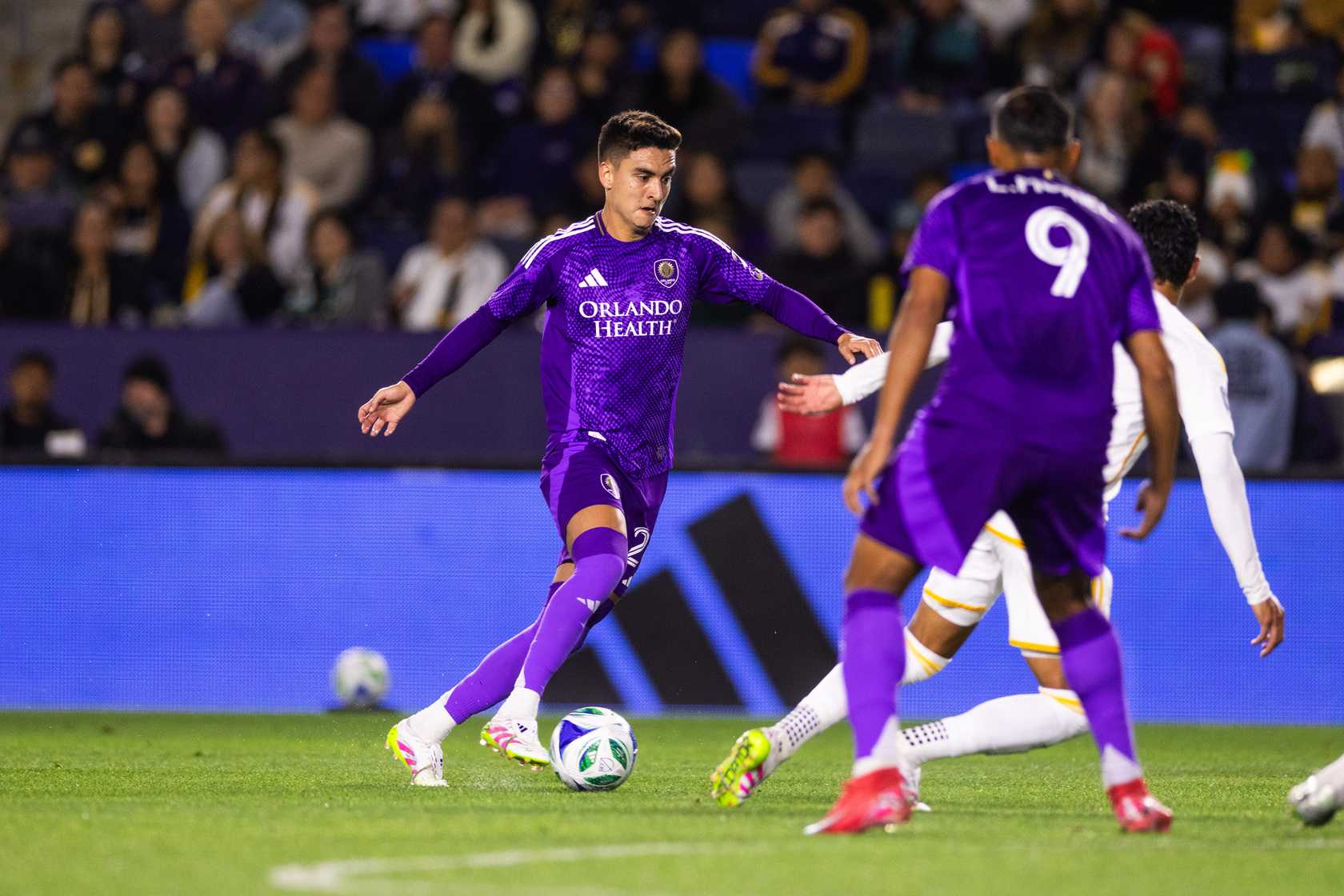
Orlando City capped off its March slate of matches with a cross-country bout against the 2024 MLS Cup champions, the LA Galaxy. In what was the longest commute that the Lions will register in the 2025 season, Orlando looked out of sync for much of the match, especially when contrasted with the squad that stomped D.C. United at home last week. Miraculously for the fans that stayed up past their bedtimes back on the East Coast, the Lions shocked the reigning champions and stole all three points with a come-from-behind 2-1 victory over the final quarter hour of the match.
Let’s look at the Lions’ individual performances to see who made the grade and who can improve as the calendar turns to April.
Starters
GK, Pedro Gallese, 6.5 — Gallese returned for Orlando after missing time while representing Peru during World Cup qualifiers. For the most part, he did well against the pressure of an agressive attack from the Galaxy. In the end, he was credited with just one save, which was a massive righthanded block of a shot by Gabriel Pec that could have put the game away for the home side. It isn’t worth entertaining a discussion about Gallese “letting another one in,” as the goal that the Galaxy scored was off a point-blank redirection back against his momentum, and it should have at the bare minimum warranted a second look for a potential offside ruling. His distribution was mostly solid, and he had an 81.8% passing rate on his 11 attempts while completing three of his five long balls. He was booked in the waining moments of the match for time wasting — although it was Rodrigo Schlegel who kicked the ball away without being spotted, and Gallese was merely retrieving it.
D, Rafael Santos, 5.5 — Santos had a few bright moments throughout the match, with an emphasis on the word few. I did think that he was better at getting into the attack and sent several balls across the net that had the potential to be dangerous. On the defensive end, there were just too many mistakes for my liking, whether that be careless turnovers, poor positioning, or falling asleep on the back side of the play. He and Ivan Angulo were both at fault on LA’s goal, as neither picked up Miki Yamane’s run. Santos was also overpowered twice by Pec. The Brazilian touched the ball 48 times, provided two key passes, one successful cross (on five attempts), and a passing rate of 76.9%. Defensively, he provided two tackles and three clearances. Offensively, Santos recorded a shot that was not on target. The left back currently benefits from a lack of depth pushing him for his starting minutes but will need to improve if Orlando is to continue its winning ways. He was replaced by David Brekalo in the 66th minute.
D, Rodrigo Schlegel, 7 — Schlegel had a productive and technically sound evening for the Lions. Defensively, he contributed one interception, a team-high seven clearances, and two blocked shots. He passed at a 93.6% rate, while touching the ball a team-high 88 times, and completed five long balls (on eight attempts). He didn’t register an offensive statistic during the match, but he played well and I thought that he had solid positioning throughout the night when the Galaxy sent balls into the box.
D, Robin Jansson, 6 — Something just seems off right now with Jansson, as the output from the captain simply feels less than what we have come to expect. Nonetheless, Jansson went the full 90 and recorded 65 touches. He completed 94.8% of his passes which included a team-best seven accurate long balls on nine attempts. Defensively, he contributed one tackle, one interception, and three clearances. Christian Ramirez beat Jansson on the lone goal for the Galaxy.
D, Alex Freeman, 6.5 — Freeman continues to put in the work for Orlando City. While his first West Coast trip was not fruitful in terms of goal-scoring contributions, the young Lion still managed to affect the game in a myriad of ways. He recorded 69 touches and completed 93.3% of his passes, which included two key passes and one accurate cross. Defensively, he added a team-high four tackles and two clearances. Offensively, Freeman tied Martin Ojeda for the most shots taken on the night (three) but was only able to put one on target. Freeman continues to showcase a solid motor that is helping to drive the offense, and he has shown strong chemistry with Marco Pasalic as well, but the most impressive aspect of his game against the Galaxy for me was the job he did in space defensively against Joseph Paintsil when the speedster entered the match in the second half.
MF, Cesar Araujo, 6.5 — This felt like a classic Araujo performance and the Uruguayan was seemingly everywhere on the pitch. He logged 63 touches and completed 90% of his passes but was only successful on one of his five long-ball attempts. Defensively, he contirbuted two tackles, one interception, and two clearances. Offensively, Araujo did not record a stat but did suffer a team-high three fouls. Araujo was able to defend without being booked against the Galaxy, and he has shown signficant improvement this season so far in not picking up careless yellow cards.
MF, Eduard Atuesta, 7.5 (MotM) — The former member of LAFC became the catalyst for the late offensive turnaround against what used to be his crosstown rival by earning a penalty in the 77th minute. He recorded 75 touches and completed 89.8% of his passes, which inlcuded two key passes, four accurate long balls on five attempts, and two succesful crosses on two attempts. Offensively, he attempted two shots, one which nearly put Orlando City in the lead when it hit the right post. Defensively, he contributed one tackle and two clearances. Atuesta benefitted from the insertion of Brekalo and Duncan McGuire, pushing forward into the attack, and without his effort, Orlando City likely would not have earned all three points. He was replaced by Joran Gerbet in stoppage time as part of a time-wasting, like-for-like substitution to see out the match.
MF, Ivan Angulo, 5.5 — To put it bluntly, Angulo is not in great form right now. The speedy Colombian is failing to challenge opposing back lines in the attack and has become a liability on the defensive side of the ball. The pairing of Angulo with Santos on the left has become a favorite area for the opposition to attack, and he was partly culpable in letting Yamane sneak in toward the back post on LA’s goal. He recorded 37 touches and completed 90.5% of his passes, which included one key pass. Defensively, he chipped in one tackle and one interception. Offensively, Angulo was dispossessed a team-high four times, as the careless giveaways — often in Orlando’s defensive half — continue to pile up. Orlando clearly needs more from the left wing, who was replaced in the 66th minute by McGuire, with Oscar Pareja pushing Ojeda to the left and playing Luis Muriel as the No. 10.
MF, Martin Ojeda, 7 — Ojeda did not allow another Lion to even remotely consider taking the penalty as he quickly stood over the spot, ball in hand, and then calmly converted the PK to pull Orlando level. Ojeda has now tied his goals total (four) from the 2024 season in only the sixth game of the year. Ojeda touched the ball 56 times and passed at a 90.5% rate while providing one key pass and four accurate long balls out of five attempts. Ojeda could have stood to improve his crossing, as he was only accurate on one of his five attempts. Offensively, Ojeda took three shots (tied with Freeman for the most on the team) but put just one on target (the penalty that he converted). He badly scuffed his first shot and his second was just off target in the first half. Defensively, he didn’t contribute a meaningful statistic, which was surprising, and it kept him just a rung below Atuesta when it came to Man of the Match honors.
MF, Marco Pasalic, 6.5 — Pasalic showcased several individual moments of brillance in the first half when the game was moving quickly end to end. Unfortunately for the Croatian winger, those moments failed to result in a change to the scoreboard. He touched the ball 39 times and completed 81.5% of his passes, including all four of his long balls. Defensively, like Ojeda, Pasalic did not record a meaningful statistic. Despite not scoring against the Galaxy, Pasalic continues to flash his skill with the ball and has been one of the main driving forces behind the strong offensive start to the season. He was replaced by Dagur Dan Thorhallsson in the 82nd minute.
F, Luis Muriel, 7 — Did Muriel score or did John McCarthy botch the play? Both, but who cares? Muriel’s long-distance free kick in the 90th minute found the back of the net, and the placement of the shot contributed to McCarthy’s mistake, as the Colombian sealed the victory and three important road points for Orlando City. A play reminisent of when fellow Designated Player Ojeda hit the equalizer from practically midfield against Charlotte FC back in 2023, Muriel stepped up to a free kick well outside the box and sent a shot towards the top left corner of the net. The goal capped a well-rounded performance for Muriel, who continues to play his best soccer in an Orlando City kit. Muriel finished with 37 touches and completed 88% of his passes, including a key pass. Offensively, he registered two shots with the one that mattered being on target. His other shot was a laser through traffic that barely missed just outside the left post on a set piece. Defensively, the striker contributed a tackle. Kyle Smith replaced him in the third minute of stoppage time.
Substitutes
D, David Brekalo (66’), 7 — I thought Brekalo put in some of his best minutes of the year as he entered in the 66th minute for Santos. It was an unexpected substitution, as Brekalo is a central defender. Regardless, the Slovenian played strong and sound defense, snuffing out multiple attacking runs by Pec. He racked up three tackles and three clearances on defense and put in several eye-opening efforts in the attack as well, as Orlando looked to get back into the match. He completed 90.9% of his passes, and while he did not record a shot, he was quite active around the box and made multiple runs off of his attacking counterparts. Brekalo at left back might be something to keep an eye on, as Pareja has been looking for someone to play consistently well there early in the season. Time will tell.
F, Duncan McGuire (66’), 6.5 — McGuire secured his longest stint since his off-season shoulder surgery and looked agressive over the final moments of the match. He opens up the field in a way Muriel is physically not able to at this point in his career, as the American got in behind the back line multiple times and pulled it out of shape for his teammates to exploit. He recorded three shots, which were all off target, but it is only a matter of time before the forward finds the back of the net. He completed 80% of his five passes and was credited with a key pass.
MF, Dagur Dan Thorhallsson (82′), N/A — Thorhallsson came on in relief of Pasalic and did well over the final moments of the match. The insertion of Brekalo, McGuire, and then Thorhallsson allowed Orlando to be the more dangerous side over the last 20 plus minutes of game time. He completed 83.3% of his passes and was credited with two key passes. Defensively, the product of Iceland added two clearances, and he did well to track back and help Freeman keep Paintsil bottled up.
D, Kyle Smith (93′), N/A — Smith came in following the long-distance goal by Muriel to help see out the victory.
MF, Joran Gerbet (93′), N/A — Like Smith, Gerbet was inserted to help see out the road win in stoppage time but also came into the match for Atuesta who was on a yellow card.
That’s how I saw the individual performances in Orlando City’s come-from-behind win over the Galaxy. Let us know how you saw the game in the comments below, and don’t forget to vote for your Man of the Match.
Lion Links
Lion Links: 3/31/25
Lions and Pride win, NWSL weekend recap, FA Cup quarterfinals, and more.
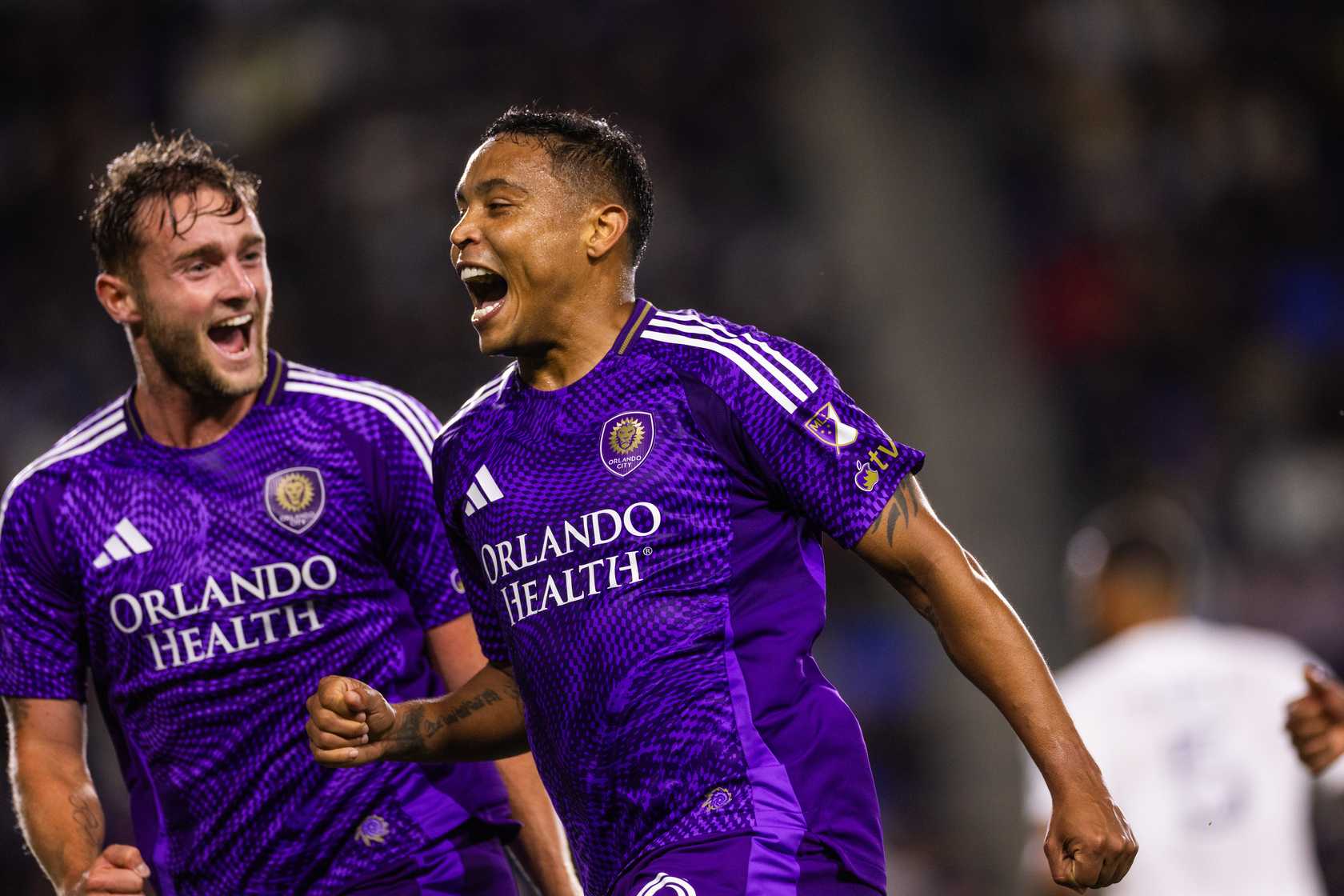
Hello, Mane Landers! I hope all is well with you down in Florida. I’ve been very busy at work but will attend the Chicago Cubs’ home opener at Wrigley Field later this week. Our Lions and Pride won while OCB was off this weekend. We’ve got plenty to cover today, so let’s get to the links.
Orlando City Beats LA Galaxy on the Road
On Saturday, Orlando City fought back from a 1-0 deficit, scoring two goals in the second half to defeat the LA Galaxy 2-1 at Dignity Health Sports Park. The Galaxy struck early in the first half to jump on top. In the second half, the Lions were awarded a penalty kick after Eduard Atuesta was taken down in the box, and Martin Ojeda buried the spot kick to tie the match at one. In the 90th minute, Luis Muriel scored the winning goal on a long-range free kick to complete the comeback. Orlando is on a three-match unbeaten streak and beat the LA Galaxy for the third consecutive time. Orlando City’s next match will be on the road Saturday against the Philadelphia Union at Subaru Park.
Orlando Pride Defeat San Diego Wave at Home
The Orlando Pride defeated the San Diego Wave 2-1 Saturday afternoon at Inter&Co Stadium and extended their win streak to three matches to start the season. After a scoreless first half, Haley McCutcheon scored to give Orlando the lead. The Wave equalized before Marta converted a penalty kick goal to seal the win for Orlando. The Pride are off to a great start this season, outscoring their opponents 10-1, and are atop the NWSL standings ahead of the Kansas City Current on goal difference. The Pride are off this weekend due to the international break but will be on the road in their next match against the Seattle Reign on April 12.
NWSL Weekend Recap
The National Women’s Soccer League’s third week of matches is in the books. On Friday, the Houston Dash and NJ/NY Gotham FC match ended in a scoreless draw. The Washington Spirit defeated Bay FC 2-0, with Ashley Hatch scoring both goals. On Saturday, the Kansas City Current defeated the Utah Royals 3-0, while the Portland Thorns and North Carolina Courage match ended in a scoreless draw. On Sunday, the Chicago Stars fell 1-0 to Racing Louisville and remain winless, while Angel City FC edged the Seattle Reign 2-1 to secure its first win of the season.
FA Cup Quarterfinals Recap
The FA Cup quarterfinals wrapped up with thrilling drama as four clubs booked a spot in the semifinals. Crystal Palace cruised to a 3-0 victory against Fulham, while Nottingham Forest edged Brighton 4-3 on penalties after a scoreless draw to advance. Aston Villa dominated Preston North End as Marcus Rashford scored twice to seal a 3-0 win, while Manchester City edged Bournemouth 2-1. The FA Cup semifinals are set for April 26 as Crystal Palace faces Aston Villa while Nottingham Forest will take on Manchester City.
Free Kicks
- Orlando City GM Luiz Muzzi provided some insight in an ESPN.com article on player transfers and highlighted the importance of building connections with different clubs to facilitate transfers.
- Former Lion Benji Michel is going to play for HJK Helsinki.
- Antoine Griezmann is reportedly staying at Atletico Madrid next season despite being linked to a potential move to join LAFC in MLS.
- RB Leipzig has fired manager Marco Rose, as the club is sixth in the Bundesliga table and has appointed Zsolt Low as interim manager until the end of the season.
- David Blitzer is reportedly close to selling his majority ownership stake in the Utah Royals and Real Salt Lake after owning both clubs since 2022.
- Sports Illustrated released its list of MLS Coaches on the hot seat after poor starts, mentioning Sporting Kansas City’s Peter Vermes, the LA Galaxy’s Greg Vanney, and the New England Revolution’s Caleb Porter.
- FIFA is reportedly considering having a one-game playoff between LAFC and Club America, with the winner replacing Club Leon in the 2025 FIFA Club World Cup.
- That will do it for me today, Mane Landers. Enjoy your Monday, and I’ll see you next time.
-
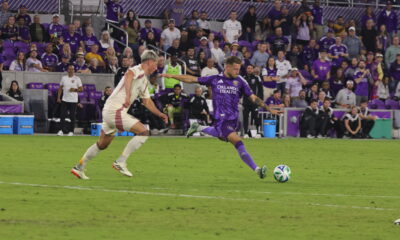
 Orlando City1 week ago
Orlando City1 week agoOrlando City vs. D.C. United: Final Score 4-1 as Lions Blast D.C. at Home
-
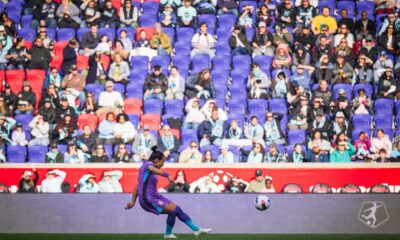
 Orlando Pride1 week ago
Orlando Pride1 week agoOrlando Pride vs. NJ/NY Gotham FC: Final Score 2-0 As Pride Take Three Points Away From Home
-
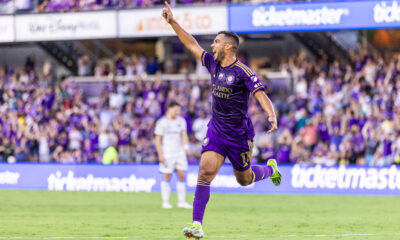
 Orlando City1 week ago
Orlando City1 week agoOrlando City vs. D.C. United: Preview, How to Watch, TV Info, Live Stream, Lineups, Match Thread, and More
-
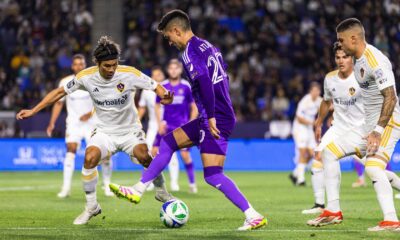
 Orlando City3 days ago
Orlando City3 days agoOrlando City vs. LA Galaxy: Final Score 2-1 as Cardiac Cats Score Late to Earn First Road Win
-
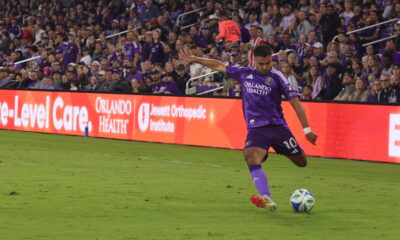
 Orlando City1 week ago
Orlando City1 week agoOrlando City vs. D.C. United: Player Grades and Man of the Match
-

 Orlando City6 days ago
Orlando City6 days agoOrlando City’s Offense Looks Different With Marco Pašalić on the Right
-
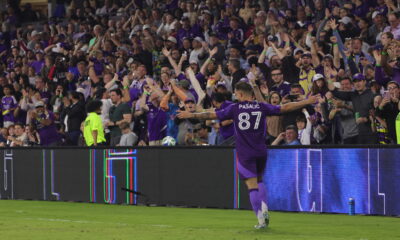
 Orlando City1 week ago
Orlando City1 week agoOrlando City vs. D.C. United: Five Takeaways
-
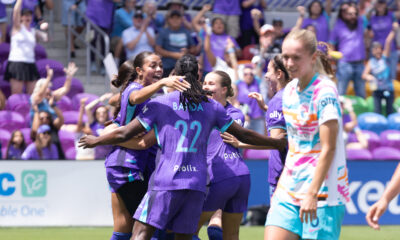
 Orlando Pride3 days ago
Orlando Pride3 days agoOrlando Pride vs. San Diego Wave FC: Final Score 2-1 as Pride Win Third Straight


